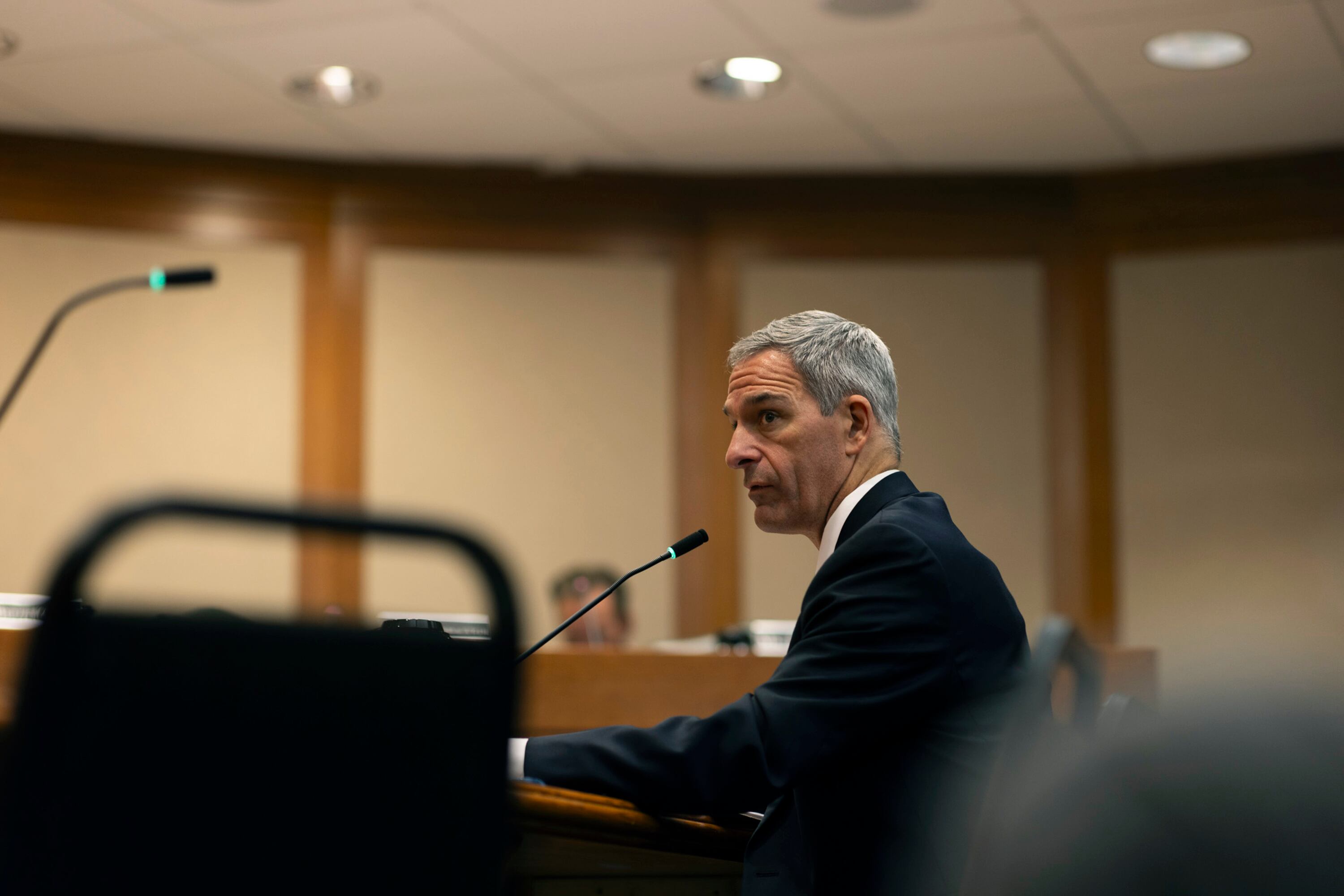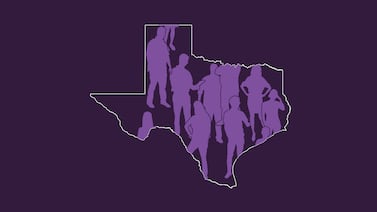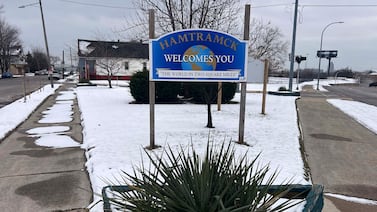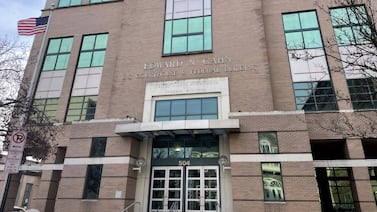Votebeat is a nonprofit news organization reporting on voting access and election administration across the U.S. Sign up for Votebeat Texas’ free newsletter here.
This article is co-published with ProPublica, a nonprofit newsroom that investigates abuses of power, and with The Texas Tribune, a nonprofit and nonpartisan newsroom that engages with Texans. Sign up to receive ProPublica’s biggest stories here and The Texas Tribune’s newsletters here.
Texas lawmakers Wednesday signaled plans to consider a new law requiring proof of citizenship to register to vote, though even one of the strongest supporters of such legislation acknowledged instances of noncitizens voting are rare.
During a Senate State Affairs committee hearing, lawmakers expressed interest in reviving legislation modeled on a proof of citizenship requirement in Arizona, currently the only state with such a requirement in force.
Lt. Gov. Dan Patrick called the hearing on noncitizen voting after Gov. Greg Abbott issued a press release boasting that the state had removed more than potential 6,500 noncitizens from its voter rolls. An investigation by ProPublica, The Texas Tribune and Votebeat published this week found the governor’s figure was likely inflated and, in some cases, wrong.
The secretary of state’s office confirmed the news organization’s reporting during the hearing Wednesday after state Sen. Judith Zaffirini, a Democrat, cited the article’s findings and pressed Christina Adkins, the state elections division director.
The news organizations found that between September 2021 and August 2024, counties removed 581 people from the rolls on the grounds that they were noncitizens, according to a report the secretary of state gave Abbott. The governor’s news release combined that figure with a separate number of people who were removed from the rolls after failing to respond to letters alerting them to questions about their citizenship and initially said more than 6,500 noncitizens had been removed. But U.S. citizens who simply never received or responded to such letters are almost certainly included in the governor’s numbers.
In addition, the news organizations have so far found at least 10 U.S. citizens in three Texas counties who were incorrectly labeled as noncitizens or removed from the rolls because they did not respond to a notice with questions about their citizenship. The news organizations’ previous story reported finding nine citizens; reporters have since confirmed another.
“So the actual number goes back to 581 that have been identified as noncitizens?” Zaffirini said.
“I would say 581 is the number we know,” said Adkins also acknowledged that failure to respond to a notice does not mean a person is not a U.S. citizen.
After the hearing, Zaffirini said she is concerned that the intense focus on making sure noncitizens aren’t on the voter rolls “will be interpreted as voter intimidation in some cases,” even if it’s not intended that way.
Nonetheless, multiple lawmakers on the committee, which is comprised of nine Republicans and three Democrats, said they believe the state needs to adopt requirements similar to Arizona’s 2004 law. Only six committee members attended all or part of Wednesday’s hearing, which covered multiple topics. Zaffirini was the only Democrat there.
Hughes proposed legislation last year that would require people to show proof of citizenship before they can vote, but it failed to move forward. On Wednesday he said he intends to file it again next session.
“We need to get it done,” Hughes said.
Republicans around the country have repeatedly raised unsubstantiated concerns about noncitizen voting in recent weeks, assertions that former President Donald Trump and his party are using to cast doubt on the integrity of the upcoming November election.
In Texas, Attorney General Ken Paxton has pressed Secretary of State Jane Nelson to demand the federal government’s assistance in identifying potential noncitizens on the rolls. On Wednesday, he and 15 other attorneys general sent a letter to U.S. Department of Homeland Security Secretary Alejandro Mayorkas, saying the agency had failed to respond quickly and helpfully enough to their requests for assistance.
But the database is “the only database of noncitizens present in the United States that we have,” he said, adding, “there is no database of who’s a citizen.”
U.S. CIS has been going back and forth with officials in several states, including Texas, over what it can provide.
Sen. Paul Bettencourt, a Houston Republican, acknowledged such instances of noncitizens voting are rare but recalled his experience removing some from the rolls when he was voter registrar in Harris County more than 20 years ago.
“Now, small numbers, but actually things that have occurred,” he said. “So when we’re talking about this, it’s important to know that there are actually instances.”
States should be allowed to use Social Security data to determine citizenship, Bettencourt said in an interview after Wednesday’s hearing. The data would not encompass every person living in the United States –– not everyone has a Social Security number –– but would cover most people, he said.
Adopting a system like Arizona’s would be a major shift for Texas, and would bring new administrative burdens.
Under federal law, all U.S. voters must attest to their citizenship to register, but do not need to prove it. In 2014, the U.S. Supreme Court ruled that Arizona must allow residents who do not provide proof to vote in federal elections. That means the state has a unique bifurcated system, with a separate “federal only” list of around 40,000 people who can vote in federal elections, but not in state and local races.
But there have been glitches. Arizona officials discovered this summer that for decades, the state has been labeling some voters as having provided documents proving U.S. citizenship, when in fact they had never been asked to do so.
The error, affecting at least 218,000 longtime residents in the state, came about because the Motor Vehicle Division had incorrectly labeled the type of driver’s license the voters had, and county recorders were relying on that driver’s license information to verify citizenship when someone registered to vote. The Arizona Supreme Court ruled last month that the voters will not need to provide the proof of citizenship before November’s election, although they will need to before the next election.
Cuccinelli, who now is chairman of the conservative Election Transparency Initiative, praised the Arizona bifurcated system.
“There are bad actors. They’re the minority, but you can zero in on them a whole lot easier if they’re only on your smaller list,” he said.
Natalia Contreras covers election administration and voting access for Votebeat in partnership with the Texas Tribune. Contact Natalia at ncontreras@votebeat.org.
Vianna Davila is an investigative reporter with ProPublica and The Texas Tribune. Contact her at vianna.davila@propublica.org.
Lexi Churchill, ProPublica and James Barragán, The Texas Tribune, and Jen Fifield, Votebeat, contributed to this story.




